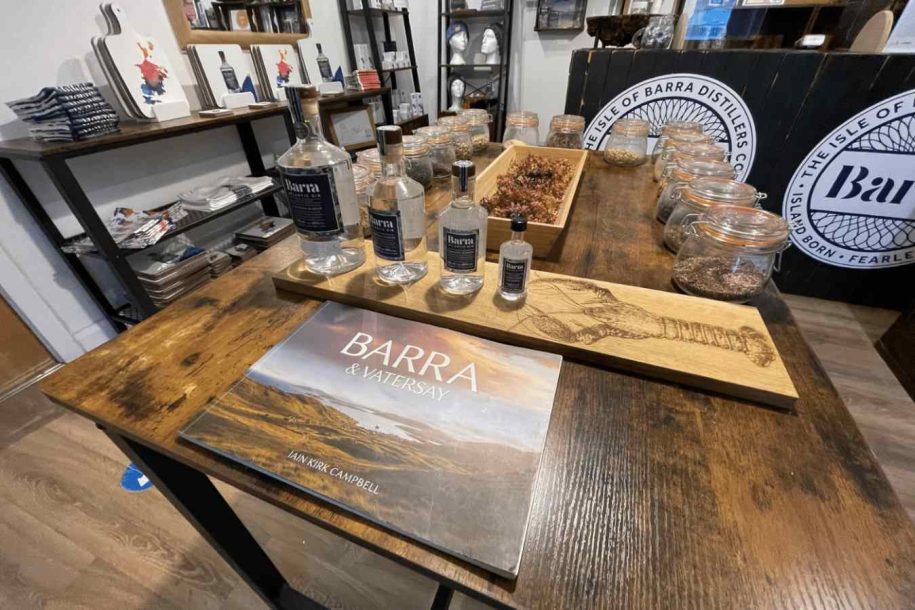Barra Gin is a unique gin that was created by the people of the Isle of Barra. It has an established reputation as one of the most sought-after gins in Scotland and beyond.
The story of Barra Gin begins back in 2012, when a group of local entrepreneurs decided to create a gin specifically suited to their island setting. The result was an exceptionally smooth and flavourful gin with subtle maritime notes, reminiscent of the surrounding waters.
Today, this distinctive spirit remains immensely popular both on and off the Isle of Barra due to its complex flavour profile and high quality craftsmanship. The team at Barra Gin strive to create a product that captures the essence of their home and they work hard to ensure that each bottle perfectly conveys their proud heritage.
As well as producing top-notch spirits, Barra Gin also strives towards sustainability in every step of their process. From sourcing local botanicals to minimizing wastage; each part of their production process is carefully considered with sustainability at its core.
Not only does this ethos bring great advantage to the environment, but it’s also beneficial for the local community on Barra too. By working with nearby producers, local businesses are able to benefit from increased exposure and potential growth opportunities; something which can be hugely rewarding for those living on smaller islands like Barra.
Barra Gin looks set for exciting times ahead; recently securing an order from Waitrose supermarket chain means that even more people are now being exposed to this iconic Scottish spirit. As well as this fantastic news, there’s also speculation that they’re considering expanding into whisky production which could bring an even greater economic boost not only to Barra but also Scotland overall!
Overall, it’s clear that Barra Gin plays a vital role in creating sustainable economic opportunities not just within its own community but throughout Scotland too; continuing to make waves with its award-winning spirits and demonstrating how delicious gins can be made outside traditional distilling hubs like London or Glasgow.


Leave a Reply